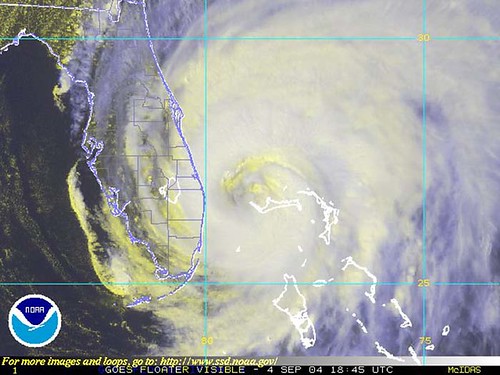MURDER, POLITICS, AND THE END OF THE JAZZ AGE
by Michael Wolraich
Order today at Barnes & Noble / Amazon / Books-A-Million / Bookshop

|
MURDER, POLITICS, AND THE END OF THE JAZZ AGE by Michael Wolraich Order today at Barnes & Noble / Amazon / Books-A-Million / Bookshop |

Living in Florida since 1964, I had the dubious privilege of experiencing numerous hurricanes. The first being Cleo, making landfall in Miami as a category 2 storm. I was living just the other side in Naples at the time so we did feel the effects of it for a few hours until it was north of us. Cleo came through just a couple of weeks after we arrived so we had our trial by water as it were.
Of course since then I have been through a number of tropical systems. Some large some not so much. But they are different now.
How has climate change effected hurricanes ? This has be a question that climatologists and meteorologists have been try to find out for the past number of years.
So far the general consensus is that it has not increased the number of tropical systems. However it has had an impact on the strength and overall size. It was rare for even a major hurricane to have tropical storm force winds to extend beyond 100 miles from the center. Most hurricanes these winds would extend only around 70 miles. Indeed hurricane Andrew that swept through and flattened south Miami only had tropical force winds at 30 miles from the center and it was a category 5 storm when it made landfall.
Compare that with tropical storm Isaac now in the Caribbean which has tropical storm force winds over 100 miles from the center. Or major hurricane Ivan where these winds extended nearly 200 miles from the center. And this trend is continuing.
Small intense storms like Andrew are becoming a thing of the past and large major hurricanes more and more common.
The number of storms and their maximum intensity may not be increasing, but the area effected by them is. Increasing the damage and lives effected by them by the wind an rainfall.

Comments
Interesting post. If changes in hurricanes were all we had to confront with climate change we would be lucky. They occur at a particular time of the year, and construction methods can decrease impacts. Of course, Florida, of which a large portion lies just above sea level, also is particularly vulnerable to storm winds blowing sea water inland, which future sea level rise will make worse.
On climate change, James Hansen has a PNAS article online at page link that looks at temperature extremes globally, and he notes the statistically significant increase in extemely hot weather. Hotter air dries out land faster in dry weather, and in wet systems, can hold more moisture causing huge downpours, which may then run off faster due to the desiccated soil. The article was briefly discussed once on NPR.
by NCD on Sat, 08/25/2012 - 11:47am
A site I go to on a fairly regular basis is National Snow & Ice Data Center's page on Arctic Sea Ice. We're breaking all kinds of minimum records this year, which is not a good thing™.
by Verified Atheist on Sat, 08/25/2012 - 12:06pm